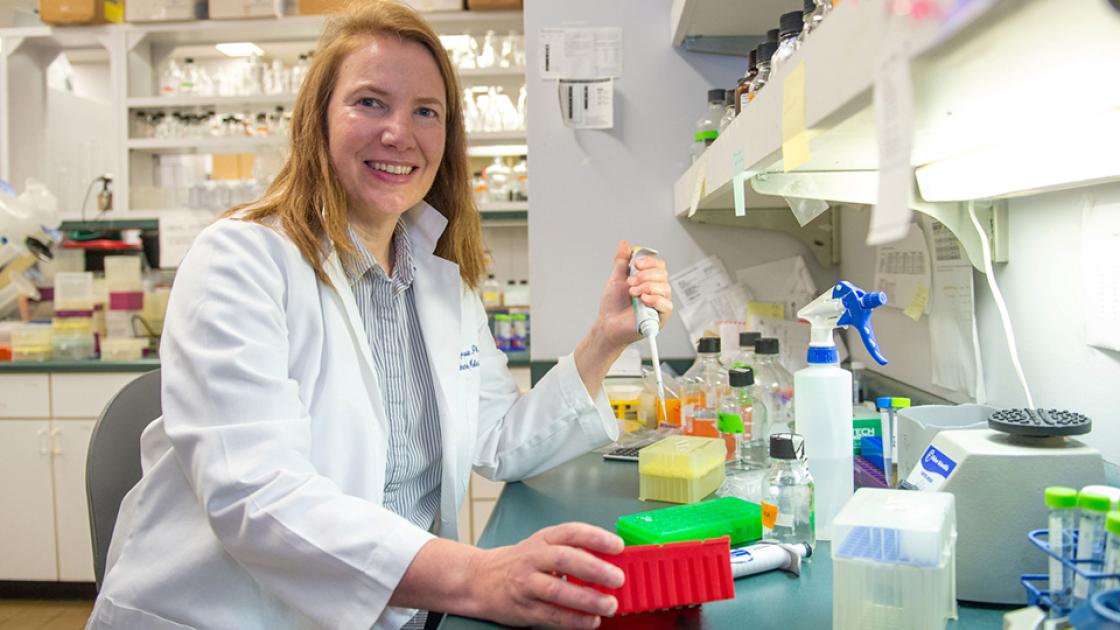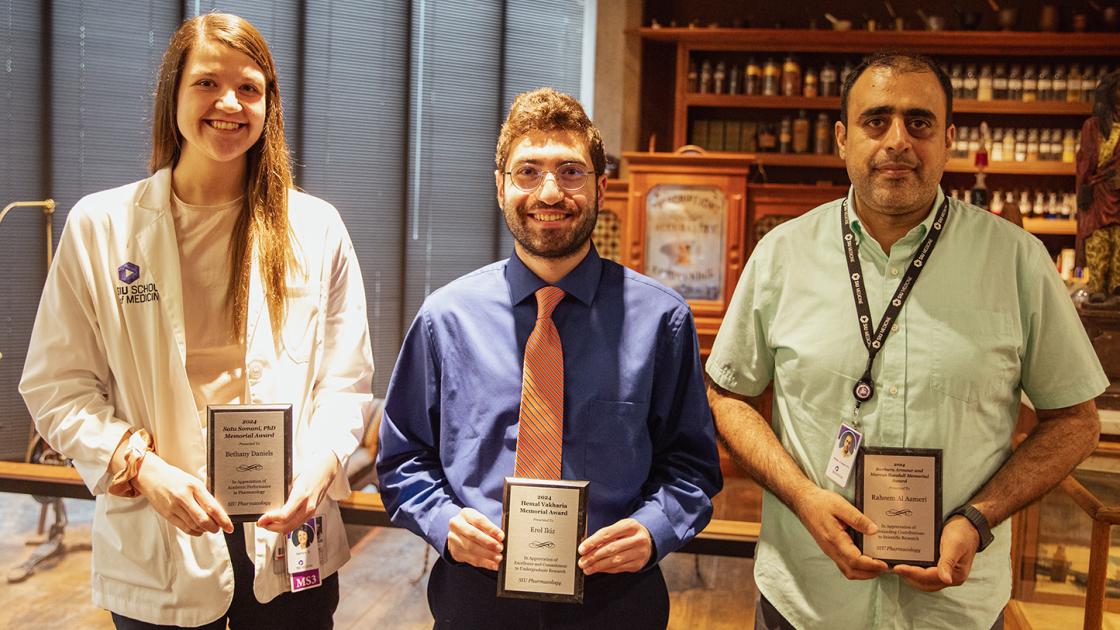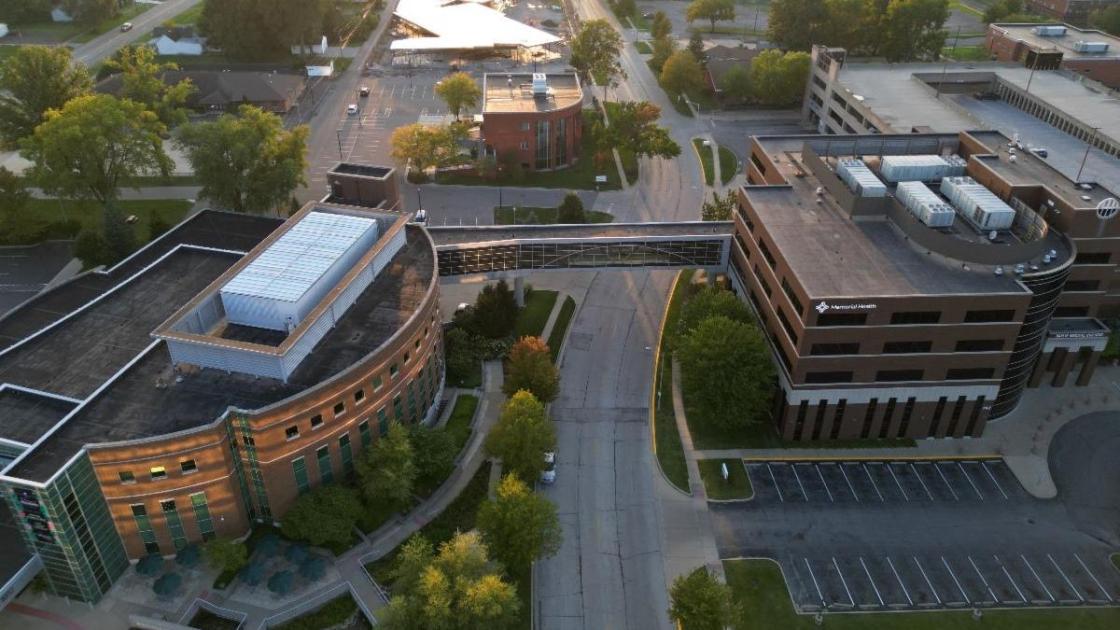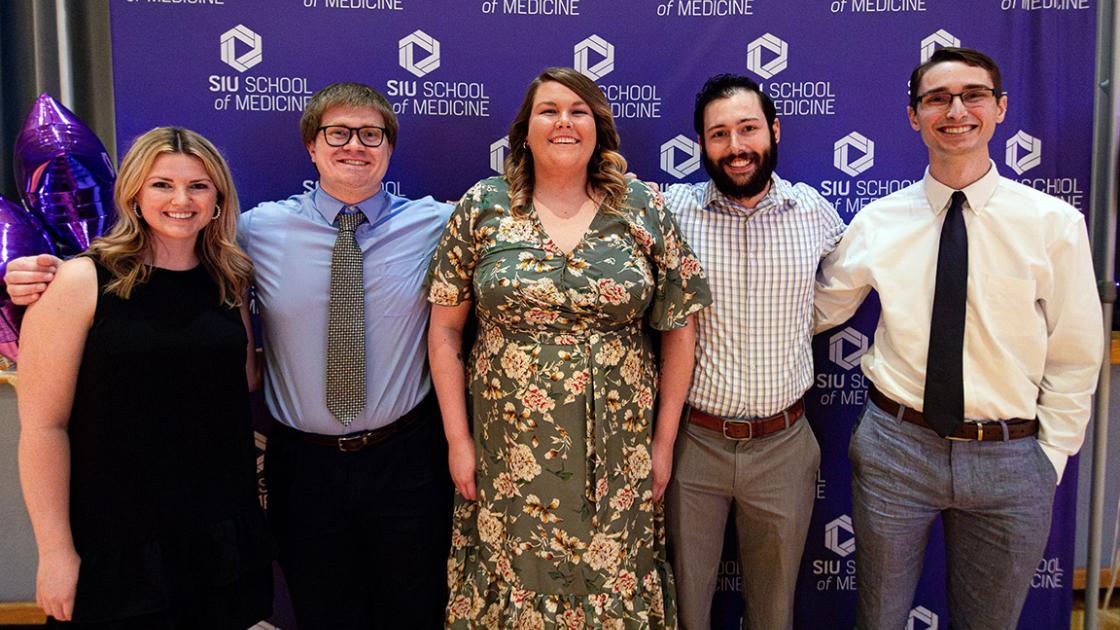
SIU Medicine scientist gets $445K grant for genetic research on devastating childhood cancer
by Tim Crosby
CARBONDALE, Ill. – A researcher at Southern Illinois University School of Medicine in Carbondale will use a $445,500 federal grant to explore ways of turning off a genetic switch that allows rare but devastating cancer to progress in children. Judith Davie, associate professor of biochemistry and molecular biology in the SIU School of Medicine, is receiving a three-year grant from the U.S. Department of Health and Human Services. The grant will help her find genetic-based answers in the battle against rhabdomyosarcoma (pronounced rab-doe-my-oh-sahr-coma), a pediatric cancer that arises from changes to the DNA of normal skeletal muscle cells.
Judith Davie, associate professor of biochemistry and molecular biology in the SIU School of Medicine, is receiving a three-year grant from the U.S. Department of Health and Human Services. The grant will help her find genetic-based answers in the battle against rhabdomyosarcoma (pronounced rab-doe-my-oh-sahr-coma), a pediatric cancer that arises from changes to the DNA of normal skeletal muscle cells.
The grant will help Davie, along with graduate and undergraduate students, use DNA sequencing data and tumor samples from cancer patients to run laboratory experiments. The work will build on Davie’s previous discovery of a new kind of oncogene, a gene that can cause a cell to grow out of control, possibly leading to cancer.
Davie’s work on this disease originally began years ago with a grant from the American Cancer Society, and as part of that effort, she gave community talks throughout the area.
“At almost every talk, a parent or relative approached me with a story about a child – a son, a niece, a grandchild – all who had been affected by this disease,” she said. “The loss of every child is a tragedy. The more we understand, the more we can help.”
Specifically, Davie is investigating a transcription factor called TBX2. Transcription factors are proteins that can turn specific genes “on” or “off” by binding to nearby DNA.
A type of transcription factor known as an activator boosts transcription, which is the process of copying DNA information into a new molecule, or RNA, resulting mRNA (messenger RNA). Repressor transcription factors, which include TBX2, decrease the rate of this process.
TBX2 is highly expressed in rhabdomyosarcoma, where it represses several key tumor suppressors, Davie said. The grant will help her identify the signaling pathway that turns on TBX2, as well as learn more about the novel tumor suppressor genes repressed by TBX2.
“We hope this information will help develop new therapeutic strategies for treating rhabdomyosarcoma,” Davie said. “If we can turn off TBX2, the tumor-suppressor genes would come on and slow the growth or kill the tumor cells like they’re supposed to do.”
Davie and her students will grow cancer cells in her lab for analysis and to test processes. They also will use CRISPR/Cas9 technology, which can precisely edit genes by cutting DNA and allowing it to naturally repair itself, as well as grafting cancer cells into mice and studying tumor growth.
Photo caption:
Judith Davie, associate professor of biochemistry and molecular biology at SIU School of Medicine, works in her lab. She is receiving a three-year grant from the U.S. Department of Health and Human Service aimed at finding genetic-based answers in the battle against rhabdomyosarcoma, a pediatric cancer that arises from changes to the DNA of normal skeletal muscle cells. (Photo by Russell Bailey)



